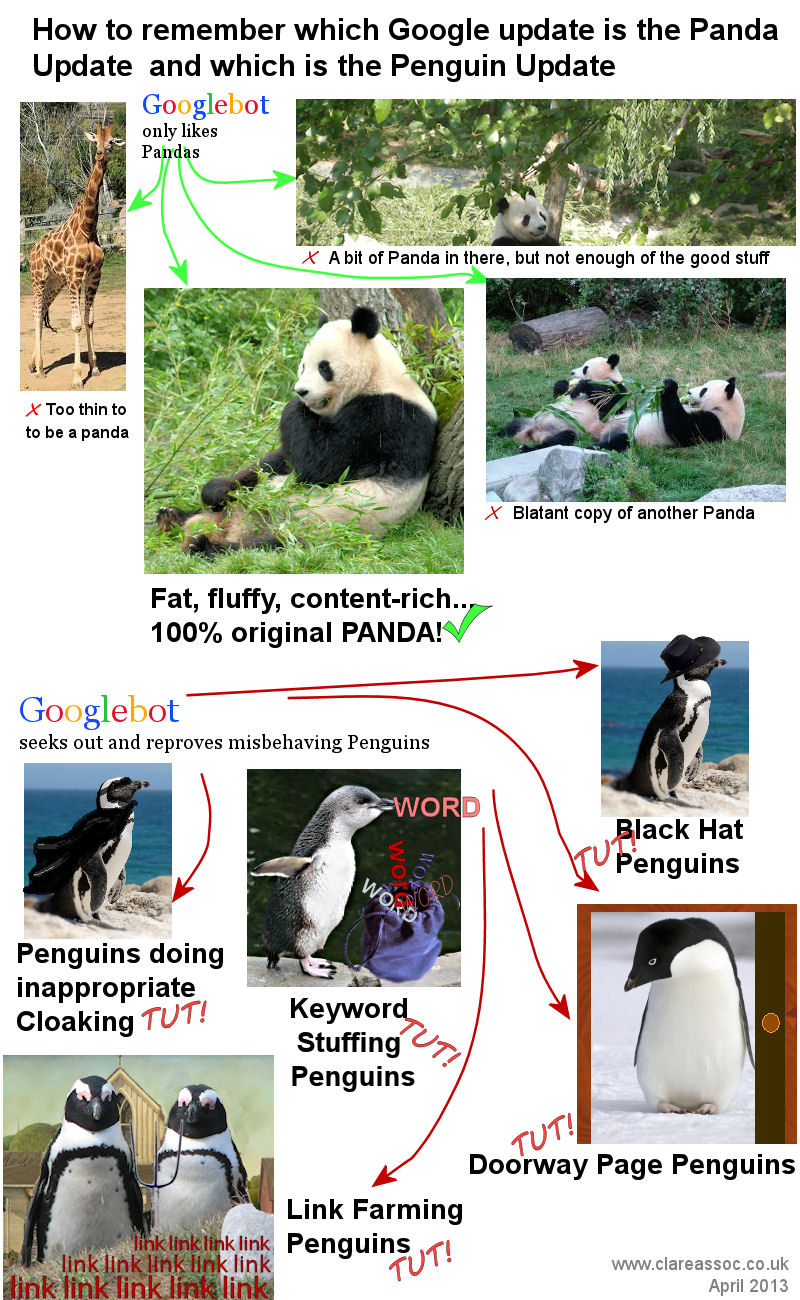Since 2011, the search engine optimisation world has been awash with talk of pandas and penguins. Google, in their ongoing quest to provide searchers with search results that are just what they were looking for, has come up with two new ways of checking for attempts to game the system. They are trying to find and remove websites that don’t provide anything very useful.
We’ve all come across those websites – you run a search looking for a local business, and find a page that is stuffed with placenames, but is clearly just a template that doesn’t offer anything relevant locally. Or you click through to a page that’s all ads and doesn’t contain any of the in-depth information you were hoping for. Google would like to stop sending you to those sites, but it’s hard for an automated system to tell useful content from random text scattered with buzz-words.
So Google created Panda and Penguin as updates to their search engine. Both, in different ways, are designed to help people find only the good stuff. But as programming updates on very complex systems do, sometimes they had unexpected or unwelcome consequences for some people using them.
Both updates were originally rolled out as periodic changes. Although they were intended to raise quality,both updates caused much wailing and cursing by website owners who found their websites had been hit. When a new Panda or Penguin was rolled out, some website owners found their websites – fairly or unfairly – no longer appeared when searches were run that had previously brought in lots of visitors. So you will probably find quite a lot of mentions of Panda and Penguin updates as scary stuff that makes it harder to promote your website. That wasn’t the intention, but it can look a bit like that sometimes.
As I mentioned, these updates used to be a periodic thing, coming along every few months. Now Panda has been integrated with the main Google system of regular updates, although the Penguin updates still happen as a periodic change to the way Google works.
But all this isn’t my problem. My problem is remembering which of the dratted updates is which. To help with that, I made this to help me visualise which one I was talking about:

Of course, part of the problem built-in to providing highly relevant search results is that someone who is really good at doing a job or providing a really superb product is not necessarily a person who is good at writing up information on websites, talking about it on Facebook or Twitter – or puzzling their way through whether their website looks more like a Panda or a Penguin.
If you are searching for a plumber, the fact that you can find a website for a plumber in Google may not correlate well with whether that plumber turns up promptly and quickly fixes your leaky cistern. Some people’s websites look like nice fat Pandas, but you only find out they are actually sneaky Penguins when you buy stuff. And some people will have skinny little websites that nobody is talking about on social media – yet will sell you the item you have always wanted and couldn’t find. Google still hasn’t got to the bottom of that one, and I wonder if they ever will.